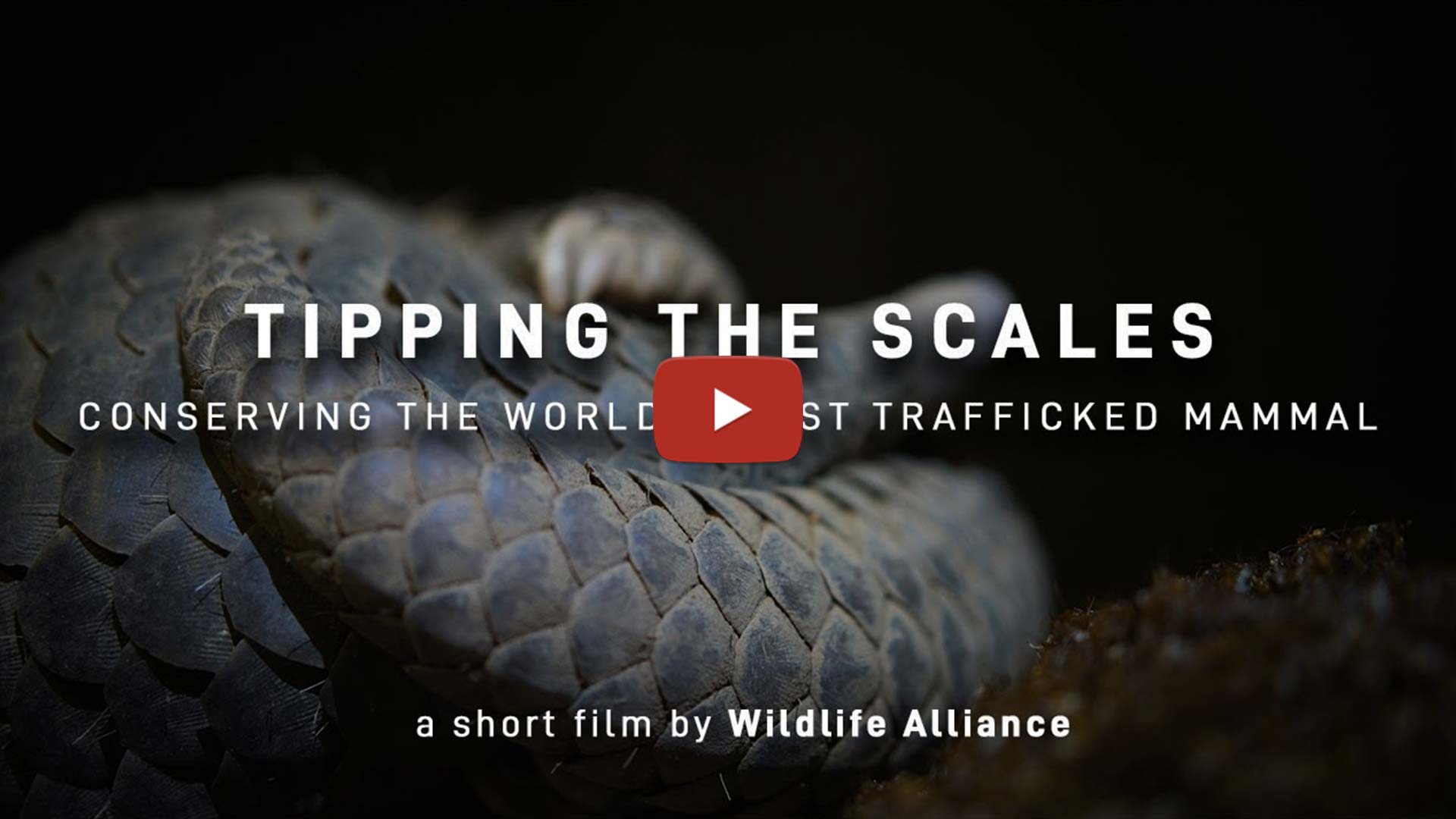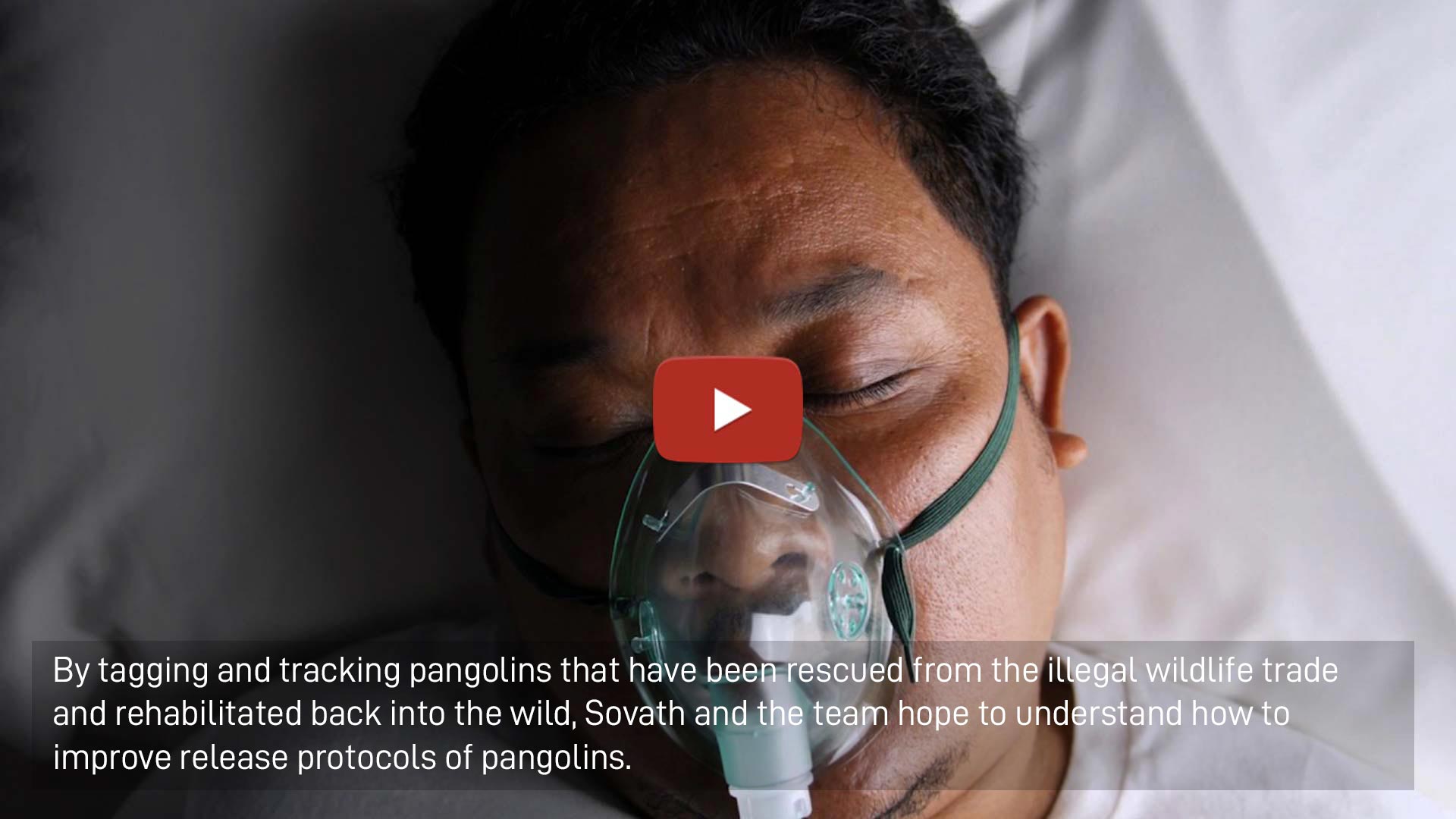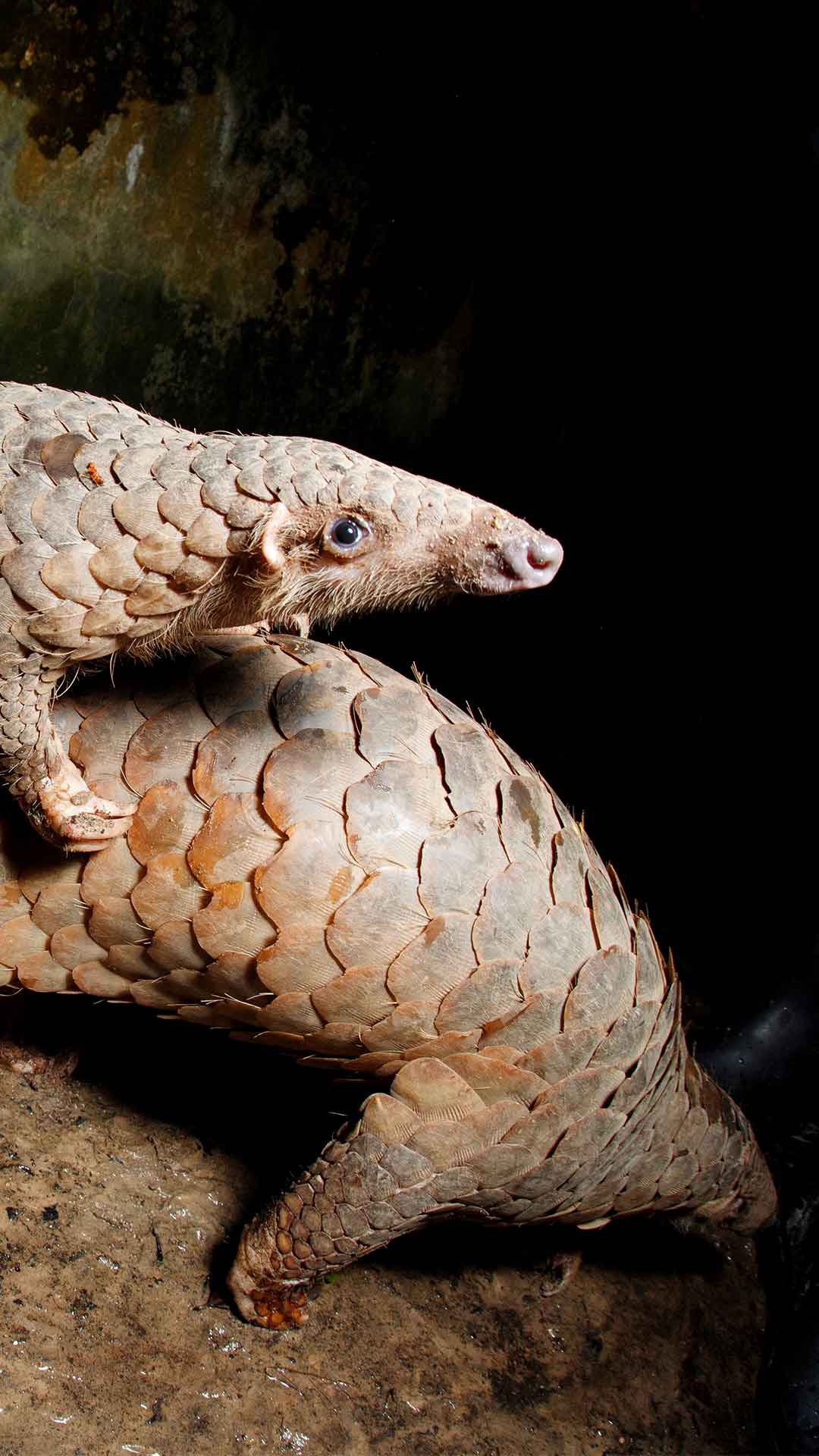PLIGHT OF THE PANGOLIN
If you’ve never seen one before, you might be shocked to know that they even exist. Yes, it’s the pangolin…the only mammals with scales, made from keratin (the same material as our nails and hair). Unfortunately, the feature that makes them so unique and is meant to protect them, their scales, is also why they have been hunted to near extinction.
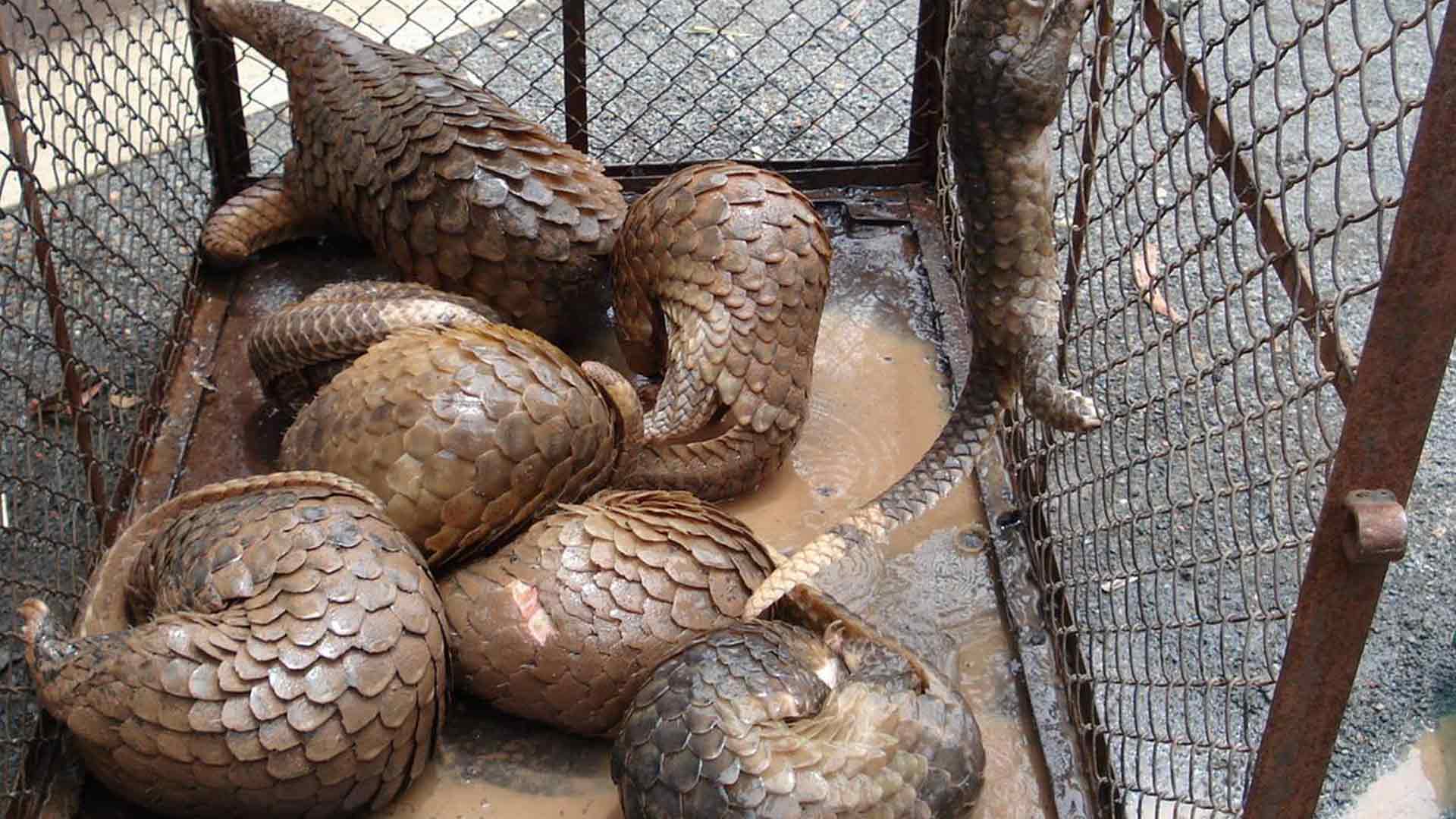
PLIGHT OF THE PANGOLIN
If you’ve never seen one before, you might be shocked to know that they even exist. Yes, it’s the pangolin…the only mammals with scales, made from keratin (the same material as our nails and hair). Unfortunately, the feature that makes them so unique and is meant to protect them, their scales, is also why they have been hunted to near extinction.

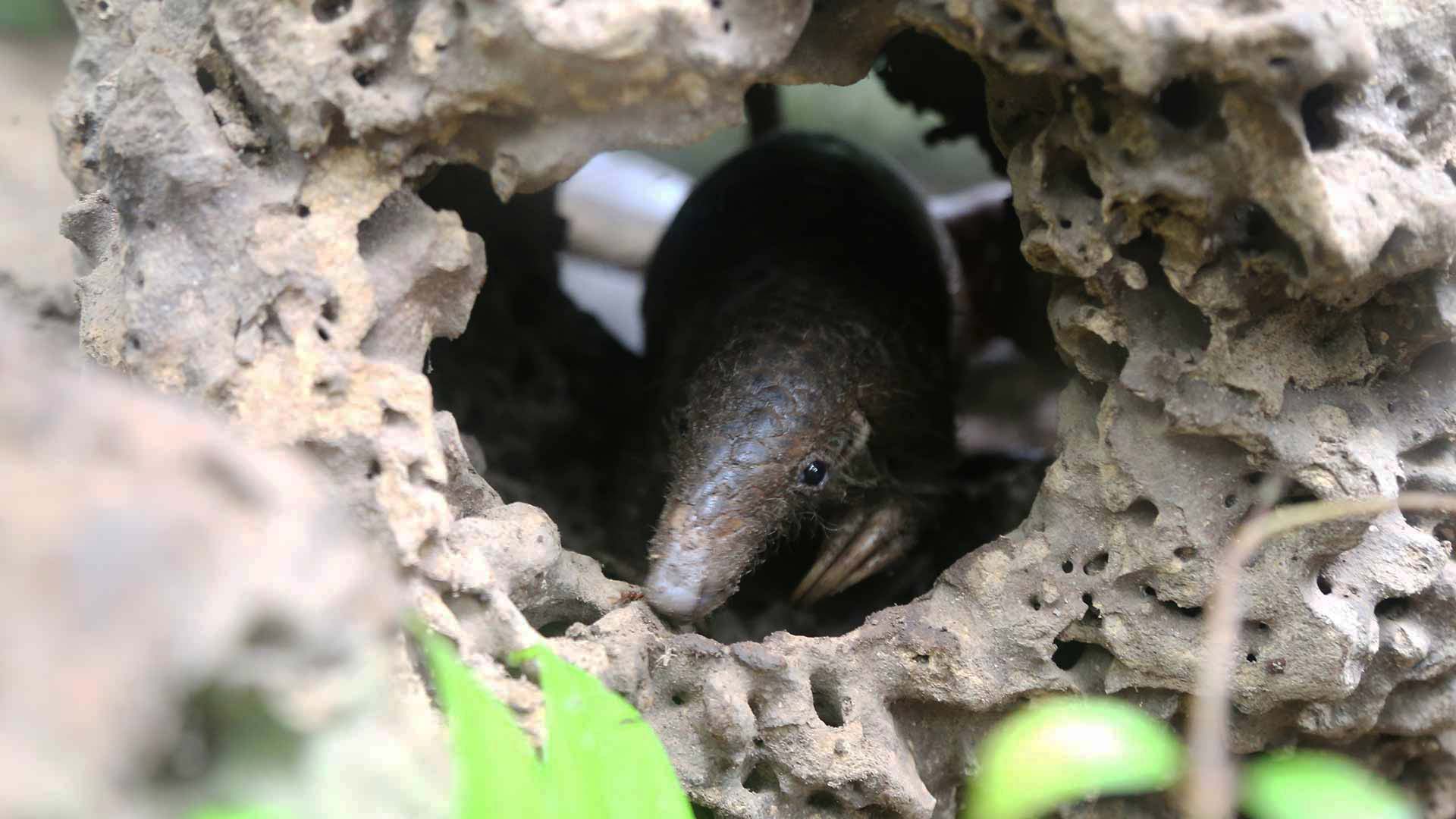
CRITICALLY ENDANGERED
“When I arrived in Cambodia, the pangolin was listed as a Common Species. Just 15 years later, it was unfortunately relisted as Critically Endangered. Demand for their scales in neighboring Vietnam and China in ‘Traditional Chinese Medicine, as well as for their meat amongst the upper class, has provided poachers with a high incentive and has consequently rendered them near extinct.”
Suwanna Gauntlett, Wildlife Alliance Founder & CEO

CRITICALLY ENDANGERED
“When I arrived in Cambodia, the pangolin was listed as a Common Species. Just 15 years later, it was unfortunately relisted as Critically Endangered. Demand for their scales in neighboring Vietnam and China in ‘Traditional Chinese Medicine, as well as for their meat amongst the upper class, has provided poachers with a high incentive and has consequently rendered them near extinct.”
Suwanna Gauntlett, Wildlife Alliance Founder & CEO
FIGHTING THE ILLEGAL PANGOLIN TRADE
Wildlife Alliance has rescued 401 live Sunda pangolins from the illegal wildlife trade since 2001:
385 by our multi-agency anti-wildlife trafficking unit, the Wildlife Rapid Rescue Team, WRRT, from smuggled shipments on national roads, on their way to Vietnam and China, and raids on restaurants in the main urban hubs.
FIGHTING THE ILLEGAL PANGOLIN TRADE
Wildlife Alliance has rescued 401 live Sunda pangolins from the illegal wildlife trade since 2001:
385 by our multi-agency anti-wildlife trafficking unit, the Wildlife Rapid Rescue Team, WRRT, from smuggled shipments on national roads, on their way to Vietnam and China, and raids on restaurants in the main urban hubs.
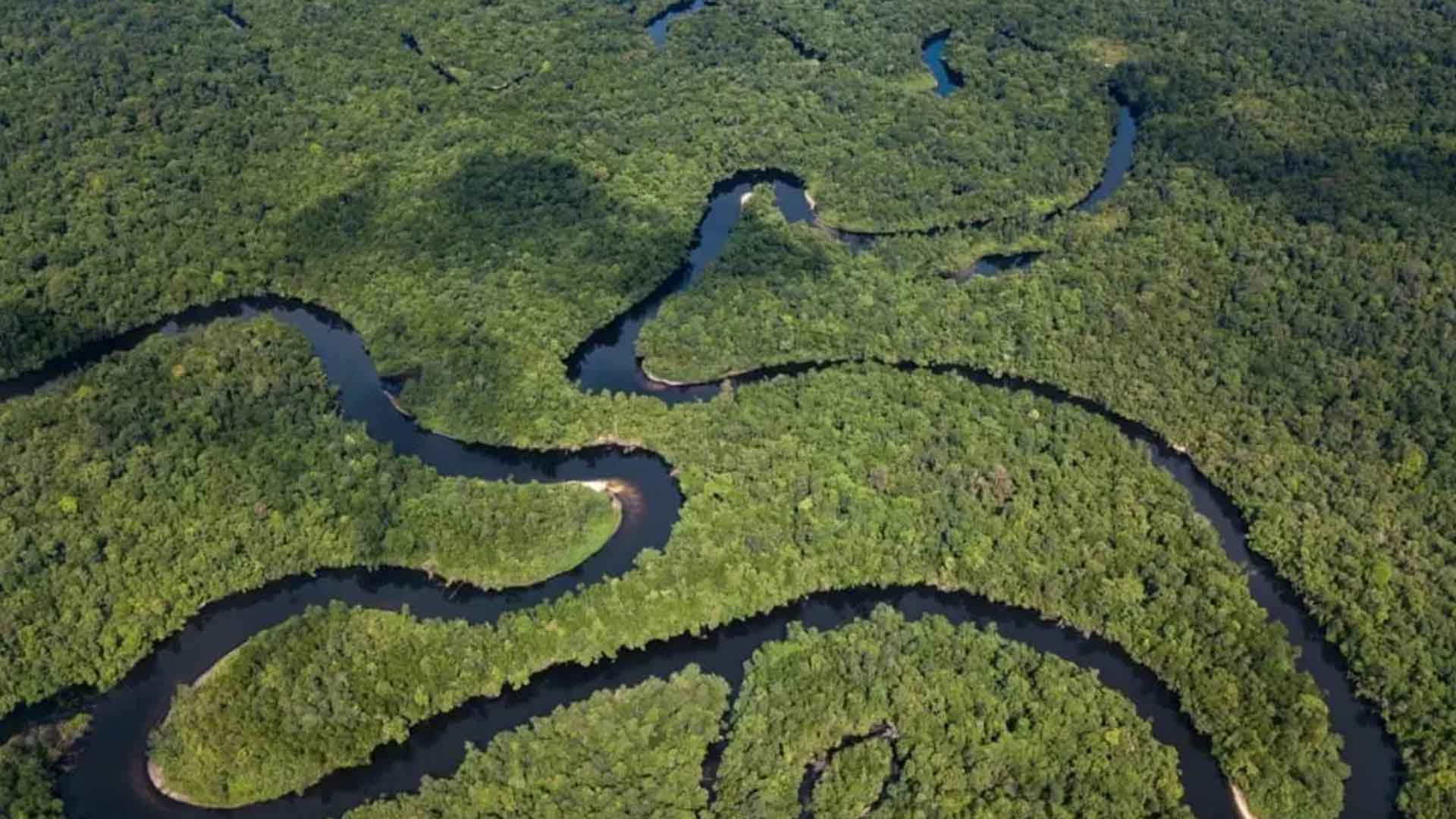
HABITAT PROTECTION
Wildlife Alliance directly protects the Cardamom Mountains, one of the main habitats for the Sunda pangolin and Southeast Asia’s largest remaining mainland dense monsoon forest, through our Cardamom Forest Protection Program (CFPP)

HABITAT PROTECTION
Wildlife Alliance directly protects the Cardamom Mountains, one of the main habitats for the Sunda pangolin and Southeast Asia’s largest remaining mainland dense monsoon forest, through our Cardamom Forest Protection Program (CFPP)
REHABILITATION & RESEARCH
Wildlife Alliance’s Wildlife Release Station (WRS) rehabilitates pangolins that are rescued from the illegal wildlife trade. Rescued pangolins are provided with a health check and, if deemed suitable, are immediately ‘hard released back into their protected habitat.
REHABILITATION & RESEARCH
Wildlife Alliance’s Wildlife Release Station (WRS) rehabilitates pangolins that are rescued from the illegal wildlife trade. Rescued pangolins are provided with a health check and, if deemed suitable, are immediately ‘hard released back into their protected habitat.
#STOPEATINGWILDLIFE CAMPAIGN
In addition to our continuous efforts on the ground to fight the illegal trade in pangolins, our #StopEatingWildlife social media campaign aims to fight the supply, demand and consumption of wildlife meat.
#STOPEATINGWILDLIFE CAMPAIGN
In addition to our continuous efforts on the ground to fight the illegal trade in pangolins, our #StopEatingWildlife social media campaign aims to fight the supply, demand and consumption of wildlife meat.


